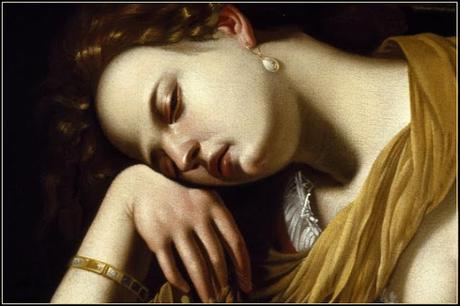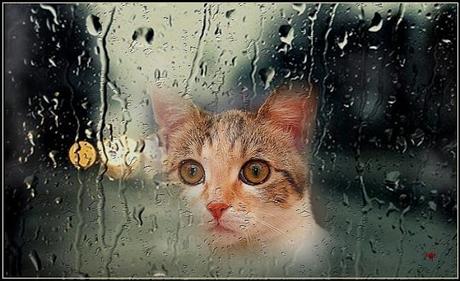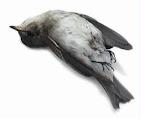Personality - Humour - Associative Element - AttributesSanguine Blood Air (hot and wet) optimistic, sociable, confident, impulsivePhlegmatic Phlegm Water (cold and wet) dependable, calm, observant, lazyCholeric Yellow bile Fire (hot and dry) ambitious, charismatic, dominating, irritableMelancholic Black bile Earth (cold and dry) kind, creative, perfectionist, often unhappy
Could you identify with any of those traits? Being an Aquarian, I'm more phlegmatic than anything, but I take exception to the 'lazy' tag! And if I happen to be slightly melancholic right now, it's only a touch of the old relegation blues. (Was it William Bloke who stated "Without relegation there is no promotion"?)
Anyway, this humoral theory served charlatans, medics, painters (see illustration below), poets and priests well for the best part of two thousand years. Renaissance scholars were intimately versed in it and every Elizabethan layman (in his humour) knew all about it from the works of Marlowe, Jonson and Shakespeare, many of whose more colourful creations were characterised according to their dominant humor. And the concept was still in favour well into the 17th century.
Robert Burton (Oxford scholar and cheerful-looking chap), wrote his 900-page treatise on 'The Anatomy Of Melancholy ' in 1621. His was a rambling investigation into the causes, symptoms and possible cures for the state we more commonly term clinical depression. Burton drew on a host of 'ologies' in his encyclopaedic study, from astrology, meteorology and numerology to physiology and psychology. And all this before weltschmerz (world sadness) was even a twinkle in Jean Paul's eye, or Sigmund Freud in Jakob and Amalia's. Of course, humoral theory has been largely discredited for a couple of hundred years now, of academic interest merely, a dodgy stepping-stone in our relentless progress to better knowing ourselves.

'Mary Magdalene as Melancholy' by Artemisia Gentileschi, 1623
But I don't intend to dwell on the human aspects of the matter. I'm more interested in whether or not animals feel emotions, including empathy and sadness. It was prompted by a TV for cat food, linked here: Whiskas.I've done some online research this week and it's been hilarious at times; (Do animals have souls? Do pets go to heaven? et cetera). But among all the arrant nonsense spouted, there are some serious studies into emotional response in higher order mammals - apes, cats, dogs, dolphins, elephants, horses, monkeys, pigs.
The thinking seems to be than any mammal whose brain physiology includes amygdala, hippocampus and hypothalamus (those structures most associated with emotional learning - fear, pleasure et cetera) is capable, to some degree, of emotional states that we would recognize from our human experience.
An extensive survey of British cat owners into what they thought their cats could feel revealed the following: nearly 100% observed curiosity, joy and fear in their pets (not surprising perhaps); over 80% believed their cats could show signs of surprise and anger; 70% were convinced they had observed evidence of both anxiety and sadness in their feline friends; over 50% thought their moggies capable of empathy and jealousy; and 40% believed their cats could feel grief.
Of course there is a danger that 'pathetic fallacy ' (the attribution of human emotions to other animals or to natural phenomena) might be at play here, so what does the science say? 'Cat Sense ', written by Dr. John Bradshaw, a biologist at Bristol University, devotes a chapter to what we have learned about the emotional lives of cats, their thoughts and feelings.
In summary the good doctor suggests that such basic emotions as anger, affection, joy, fear and anxiety are gut feelings that appear spontaneously and are generally 'of the moment', whereas more complex mental states such as jealousy, empathy or grief would require cats to have some understanding of the mental processes of animals other than themselves, and this is highly unlikely and certainly has never been empirically proved. So while cats might feel anxiety (which is always related to some perceived threat to themselves in their environment), it should not be interpreted as sadness or melancholy. That is an anthropomorphic interpretation, wishful thinking on the part of human beings, including advertising executives!

'Milly as Melancholy Moggy' by F Stop Fitzgerald, 2023
I conclude with a new monolog poem, only this one is supposedly spoken by a conflicted cat. It's completely fanciful, of course, steeped in pathetic fallacy, for as outlined above, sadness and remorse are almost certainly emotions beyond the level of sophistication cats' minds are capable of. Regardless, I offer you...Cat To SkyWhy you crying sky? Are you sad?Does it hurt you that I stalkedand killed those fluttering hedgelings?
It's just my nature. I'm sorry I was badbut it's no fun sitting indoors for days.I don't like all this wet. I promise
I'll be good. Cats can't shed tearsbut if I could put those birds back in their bush for you I would.
Do we have a deal? Please sky, dry your eyes. Bring the sunshine outand let the sparrows sing to you again.

Thanks for reading, S ;-) Email ThisBlogThis!Share to TwitterShare to Facebook
